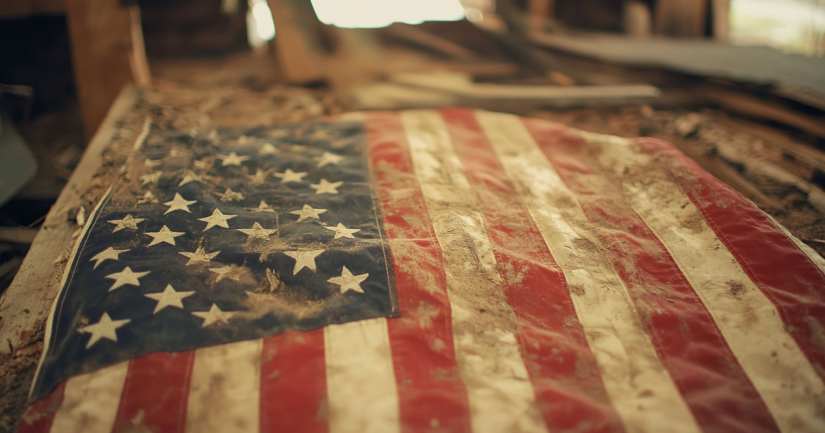
Every American has at least one commander-in-chief they admire whether for strength in crisis, visionary leadership, or quiet decency and the Who Is My Favorite President Quiz invites you to explore what that preference really says about you. Presidential favorites aren’t just shaped by history books or documentaries, they reflect our values, our upbringing, and often our personal sense of what leadership should look like. Whether you gravitate toward Lincoln’s resolve, Kennedy’s idealism, or Obama’s eloquence, your choice is a mirror as much as it is a memory.
Choosing a favorite president isn’t always about policy. It’s about the moments that define a nation and how individuals step up in those moments. Some admire FDR for his calming leadership during the Great Depression, while others look to Theodore Roosevelt for his unshakable energy and reform-driven legacy. Military service, civil rights action, economic strength, communication style all these traits play a role in shaping public perception. That’s what makes the Who Is My Favorite President Quiz so revealing: it doesn’t just test knowledge, it reveals underlying values and personal touchstones in your political identity.
Now that you’ve revealed your favorite president, why not see how you compare to the greats with the Which American President Are You Quiz? It’s a fun way to connect with history. Or, test how well you know the runners-up with the Presidents And Vice Presidents Quiz and dive into the dynamic duos of U.S. leadership. Once this quiz leaves you laughing you can bounce over to What Christmas Movie Character Are You Quiz for a funny twist. You’ll laughing as you compare your results and maybe see how funny life can be. Then head over to What Christmas Movie Should I Watch Quiz for more laughs and insight.
Presidential Leadership Through Crisis
The most admired presidents are often those who faced the greatest challenges. Abraham Lincoln preserved the Union through civil war while redefining the meaning of freedom. Franklin D. Roosevelt guided the country through economic collapse and global conflict. These leaders didn’t simply manage situations they reshaped the nation’s destiny under immense pressure. Their leadership wasn’t reactive; it was transformative.
Crisis leadership demands more than policy. It requires empathy, vision, and moral clarity under fire. John F. Kennedy calmed Cold War tensions with diplomacy during the Cuban Missile Crisis, while George W. Bush’s response to 9/11 though controversial in hindsight defined an entire era of American identity. The ability to unify and reassure in moments of uncertainty separates good presidents from great ones.
Choosing a favorite president often stems from how they handled such pivotal moments. The Who Is My Favorite President Quiz helps uncover whether you respond to calm strategic thinking, moral courage, or action-driven decision making traits that emerge most clearly during a national crisis. It’s these moments that embed a president in our collective memory, shaping not just legacies but personal admiration.
Charisma, Oratory, and Public Connection
For many, a favorite president is someone who could move a room with words alone. Ronald Reagan’s optimism, Barack Obama’s eloquence, and John F. Kennedy’s call to civic action all shaped generations through powerful rhetoric. The ability to speak in ways that unite rather than divide, that inspire rather than dictate, has always been a hallmark of admired leadership. A great speech becomes a national moment and sometimes, a turning point.
But charisma isn’t just about speeches. It’s about presence. Theodore Roosevelt’s vigor and bombast drew crowds long before microphones existed. Bill Clinton’s empathy in town halls created bonds even when policies remained controversial. Even George Washington, known for his reserved demeanor, carried a commanding presence that grounded a fragile republic. These traits help form emotional connections, which can outlast partisan divides.
The Who Is My Favorite President Quiz taps into these subtler elements of presidential appeal. It explores not just who enacted the best policies, but who carried themselves with a sense of command, authenticity, and emotional resonance. Because in the end, admiration is rarely rooted in spreadsheets it’s rooted in moments that feel personal, even if they’re part of a national story.
Legacy, Impact, and the Long View of History
Some presidential favorites don’t emerge until years after they leave office. Harry Truman was deeply unpopular when he departed, yet is now seen as one of the most consequential postwar leaders. Lyndon Johnson’s approval ratings collapsed during the Vietnam War, but his legacy in civil rights is among the most significant in American history. The long view reshapes reputations, often separating temporary popularity from lasting influence.
The Who Is My Favorite President Quiz includes these broader considerations. It challenges users to think beyond first impressions and surface-level nostalgia. It asks: whose decisions shaped your present? Who altered the country’s trajectory in a way that still ripples through your life, your town, and your vote? Because the presidents we admire most often aren’t the ones who made us comfortable but the ones who made history.
Step into history with our Presidents Quizzes and test your knowledge on the Presidents of the United States.
